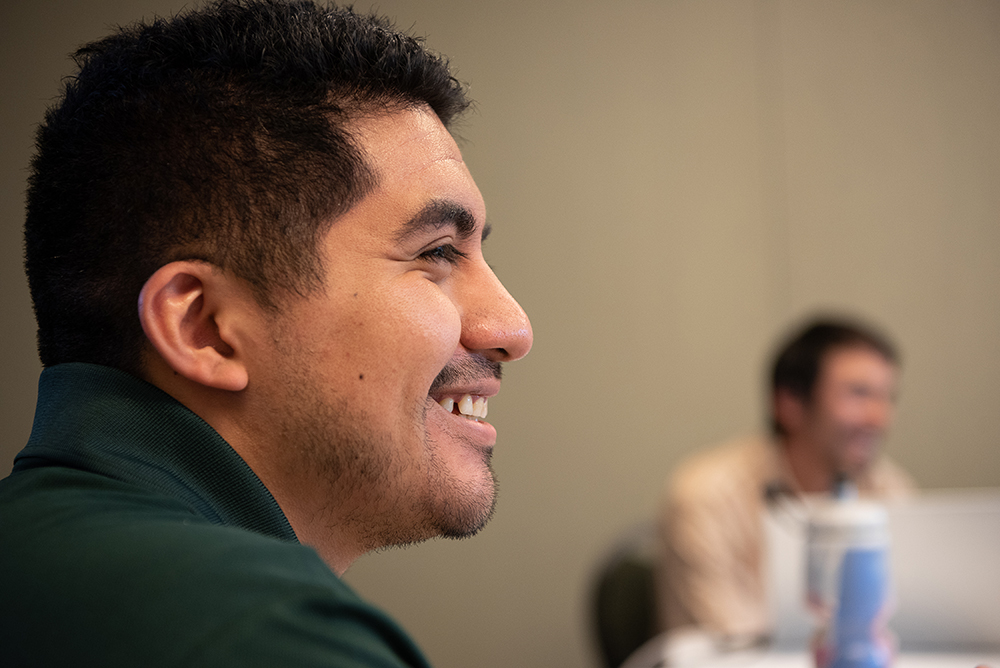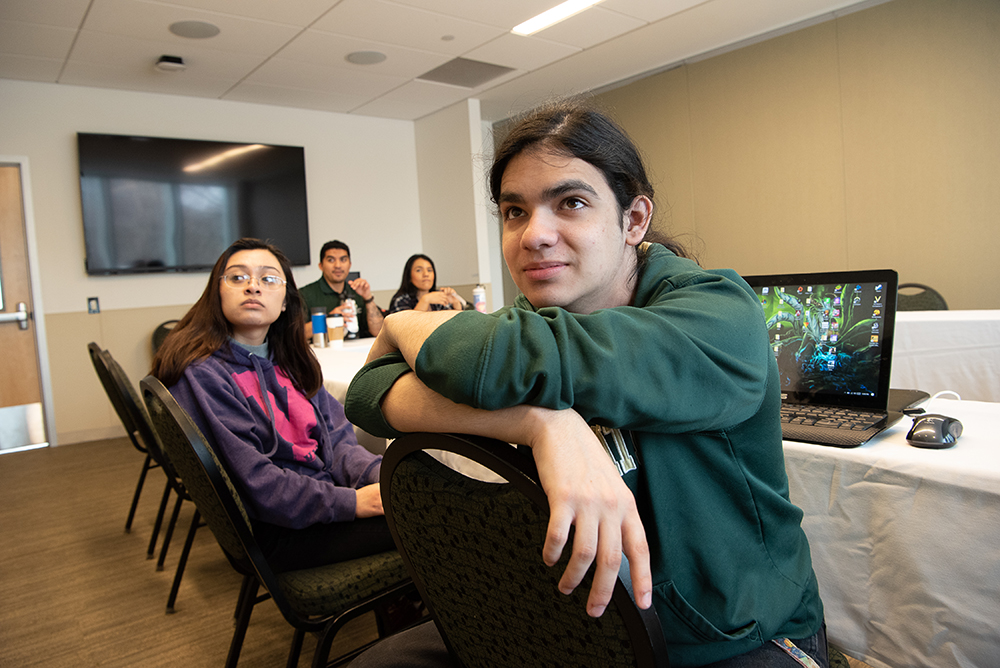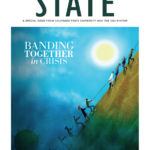Photo by Tanya Bylinsky Fabian
Daniel Dominguez, a senior studying watershed science at Colorado State University, surveyed the room last fall during the Sustaining Colorado Watersheds Conference. More than 200 people had gathered in a meeting room overlooking the Eagle River west of Vail to hear scientific presentations and discuss watershed conservation.
Despite the sweeping importance of the topic – for agriculture, industry, households, communities, recreation, and the environment – Dominguez was one of just two people of color at the water conference. The other was a fellow Hispanic student.
For Dominguez, it was a jolting reminder of the need for a wider array of perspectives and expertise in water-related policy discussions, not only to improve ideas and problem-solving but to ensure equity in the delivery of an essential natural resource.
“Water is one of those things that touches everyone. It’s important to get as many perspectives as we can, because different people with different backgrounds will help build the science that moves our communities to better solutions.”
– Daniel Dominguez, water fellow

That concept is at the core of the CSU Water Sustainability Fellows Program, part of the Colorado Water Center, a university leader in water-related research, education, and public outreach. Launched in 2016, the program works with about a dozen minority undergraduates each academic year. They meet regularly to learn about water management and conservation issues, to interact with professionals, and to collaborate on community service projects.
In one outreach effort, called the National Western Center Youth Water Project, water fellows work with high school students to present a summertime water festival for neighborhoods in north Denver; the project is tied to CSU’s water-related work at the forthcoming National Western Center.
Together, the activities are designed to build water knowledge and interest among students from diverse backgrounds, ultimately aiming to improve the inflow of minority scholars to water-related careers and decision-making in a complex – and increasingly thirsty – world.
The need for greater diversity in water policy discussions gained pointed national attention as the water crisis exploded in Flint, Michigan, starting in 2014. A switch in the city’s water supply, combined with treatment failures, resulted in delivery of household water contaminated with dangerous levels of lead. The crisis, in a predominantly African American city, sparked allegations of systemic racism and has fueled widespread efforts to improve societal representation in water decision-making.
“Our environment and natural resources are fundamental to life on Earth, and they are relevant to all communities,” noted John Hayes, dean of CSU’s Warner College of Natural Resources, when he attended a water fellows session as guest speaker in April.
Dip a toe in the topic of water, especially against a backdrop of drought, climate change, and booming global population growth, and it’s easy to see why it is considered one of the world’s “wicked problems”: Water management is so complicated and contentious – fraught with legal, environmental, social, and economic issues – that solutions often seem impossible.
“Water is a problem that needs every single perspective you can get,” said Blake Osborn, a biracial adviser for the Water Sustainability Fellows Program who also works as a CSU water resources specialist in southern Colorado.


Blake Osborn, adviser for the CSU Water Sustainability Fellows Program, leads a discussion about water rights as Victor Diaz, Karen Chico, Daniel Dominguez, and Diane Meraz listen. Photos by Tanya Bylinsky Fabian
Dominguez said the need for greater diversity in water research, classrooms, and policy discussions hit him after formative experiences in multiracial settings: He grew up in a Latino community in San Diego, served in the U.S. Marine Corps, and studied abroad with a CSU program called Communities and Conservation in South Africa. Those experiences and his studies in watershed science have inspired Dominguez to pursue a career addressing urban water concerns.
As a water fellow, he was invited to attend the 2018 Sustaining Colorado Watersheds Conference near Vail and to recommend ways to increase diversity at the annual event. In a letter to organizers, Dominguez advised more focused outreach to minority presenters and attendees, among other strategies. “The inclusion of these underrepresented groups is a critical factor in the overall success of future solutions to water issues we will face,” he noted in written recommendations.
Casey Davenhill, executive director of the Colorado Watershed Assembly, the meeting’s host, said she took the student’s recommendations seriously.
“We are looking to enlarge our network so it is more inclusive and more responsive,” Davenhill said.
“Water is a public resource. It’s so important to us all – so it’s important to broaden the conversation and our ability to think outside the box. How are we going to do that without different perspectives?”





